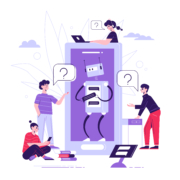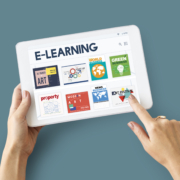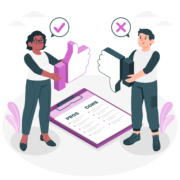7 LMS Features to Unlock Your Maximum Learning Potential
The e-learning landscape has evolved tremendously over the past decade, with Learning Management Systems (LMS) playing a crucial role in enhancing the learning experience for both educators and learners.
The proper LMS can dramatically improve how knowledge is delivered, monitored, and assessed, ensuring learners get the most out of their online courses. With a plethora of LMS options available in the market, it is essential to identify the must-have features that make a platform truly exceptional.
In this section, let’s discuss the critical LMS features for e-learning that can help you unlock the potential of your online learning platform.
1. Intuitive User Interface
The user interface is the first point of contact between the learner and the system, making it a key determinant of the platform’s success.
An intuitive, user-friendly interface ensures learners can easily navigate the system, access course materials, and complete tasks without hassles. The LMS should also be responsive and adaptive, providing seamless access across devices like desktops, laptops, tablets, and smartphones.
2. Customizability and Branding
The system should provide options for customization to fit the unique needs of different organizations or institutions.
Customizability includes changing the look and feel of the platform to match the organization’s branding, tailoring user roles and permissions, and modifying the platform’s features to suit specific learning requirements. This level of personalization not only enhances user experience but also fosters a sense of belonging and pride among learners.
3. Course Creation and Management
The primary purpose of an LMS is to facilitate the delivery of e-learning content. Therefore, a robust course creation and management feature is essential.
The LMS should allow for easy uploading and organization of course materials, such as text, videos, images, and multimedia files. Additionally, it should support various e-learning standards, such as SCORM and xAPI, to ensure compatibility with a wide range of content formats. Instructors should also be able to create and manage assessments, assignments, and quizzes to evaluate learner progress effectively.
4. Communication and Collaboration Tools
Effective communication and collaboration are crucial for a successful e-learning experience. An LMS should provide a suite of communication tools, such as forums, chat rooms, and messaging systems, enabling learners and instructors to interact, share ideas, and resolve queries. Moreover, features such as group workspaces, file sharing, and collaborative editing can facilitate teamwork and enhance the learning experience.
5. Learner Progress Tracking and Reporting
Keeping track of a student’s progress is crucial for ensuring they achieve their learning goals and recognizing where they might require extra help.
A learning management system can offer extensive tracking and reporting capabilities, allowing teachers to observe student progress, evaluate performance, and spot patterns. Customizable and exportable reports are necessary for teachers to examine data and make well-informed choices to enhance the overall educational experience.
6. Integration with Third-Party Tools
Integration with third-party tools can significantly enhance the functionality and efficiency of an LMS. For instance, integration with video conferencing tools like Zoom or Microsoft Teams can enable seamless virtual classroom sessions, while integration with productivity tools like Google Workspace can facilitate collaborative learning.
In addition, integration with social media platforms can promote learner engagement and foster a sense of community.
7. Security and Data Privacy
As more and more sensitive data is shared in online learning settings, it is crucial to guarantee the safety and confidentiality of user information. To protect this sensitive information, a learning management system (LMS) must have strong security features, including encryption, secure authentication, and access control.
Furthermore, the platform should comply with data privacy laws to ensure the privacy of users is maintained.
Conclusion
Selecting the suitable LMS for your e-learning needs can be challenging. However, by focusing on these must-have features, you can ensure that your platform is well-equipped to deliver an exceptional learning experience. Ultimately, the right system will not only enhance the way knowledge is delivered and assessed but also contribute to the long-term success of your online learning initiatives.
David Ealy Technologies is a comprehensive eLearning consultancy company that offers project management services based in the United States at competitive offshore prices. Our services include creating online training programs, transforming conventional training methods, re-branding, and training your employees in the best industry practices. Contact the leading LMS experts today!





